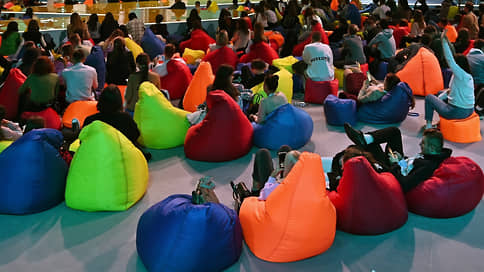Business gathered for events – Kommersant
[ad_1]

Demand for business events in Russia grew by 20% yoy in the first quarter of this year. A slight increase was also noted compared to 2019. This gave MICE market participants reason to assume that the segment has overcome the shocks that arose during the pandemic. The share of foreign events remains at a minimum level – four times less than four years ago. But the rejection of them, according to market participants, turned out to be painless for entrepreneurs: business events abroad were mainly of a status nature.
The volume of realized demand for MICE events in monetary terms for the first quarter of 2023 exceeded the value for the same period last year by 20%, according to Aeroclub Tour. The company indicates that a slight increase is also recorded relative to the first quarter of 2019, suggesting that this may indicate the end of the turmoil period for the segment that arose as a result of the pandemic. Alena Eivel, MICE Operations Director of the corporate business at Vipservice, says that the number of business events held in February-April 2023 is 30-35% higher than the same period last year. This may be due to the implementation of pent-up demand, the expert believes.
Quality hotels with conference rooms, according to the founder of Ivashkevich Hospitality Stanislav Ivashkevich, are now seeing a 50% year-on-year increase in demand for events. According to him, in some objects events are held daily and there are no free dates for the near future. The expert calls seminars the most demanded format.
Alexey Zinkovetsky, General Director of Aeroclub Tour, points out that with the departure of some large international companies from Russia, in particular, in the pharmaceutical industry, second-tier manufacturers have begun to actively develop in the MICE events segment. Stanislav Ivashkevich states that the revival is felt in virtually all sectors, including retail and the banking sector. The expert connects this with the desire of business to occupy the niches vacated after the departure of foreign companies. Alena Eyvel notes a sharp increase in the activity of local companies, many of which are no longer limited to one event per year. Part of the customers, according to her, refused entertainment events in favor of business ones. The head of the Event Agency Republic Free, Yuri Miroshnikov, connects the recovery of the MICE market with the activity of state customers and the holding of previously planned events, which for some reason were postponed.
Aleksey Zinkovetsky notes the increase in the cost of corporate events, mainly due to inflation and the redistribution of budgets in favor of small events, where the cost of participation per employee increases. Thus, the budget for events with the participation of up to 50 people, according to analysts, over the past year increased by 58% compared to 2021 and by 19% compared to 2019 (in 2020, business events were not held due to the pandemic). In the segment of medium-sized events, the dynamics was 70% and 100%, respectively. The budgets of major events last year, according to Aeroclub Tour, were 40% lower than in 2019. Alena Eivel notes that clients are now mainly interested in small events for 25–150 people. But there are also pre-bookings for large events for up to 500 people in September, October and November, she notes.
The geography of MICE events, according to Aeroclub Tour, has been concentrated mainly within the country since March last year: foreign events form only 7%, while in the pre-crisis 2019 this figure reached 30%. Now the main foreign destinations for business events are Turkey, the United Arab Emirates, Kazakhstan, Uzbekistan and Armenia. Mr. Ivashkevich claims that the refusal of offsite events for Russian business was fairly painless: even before the pandemic, for many companies they were predominantly of a status nature and took place outside of production necessity.
Within the country in terms of the number of events, according to Aeroclub Tour, Moscow, St. Petersburg, Yekaterinburg, Novosibirsk and Kazan are in the lead. Sochi, traditionally included in the top 3 event destinations, has now lost its positions, Alexey Zinkovetsky states. He attributes this, in particular, to the increase in the cost of living in the hotels of the resort, which followed the high demand for holidays from tourists.
[ad_2]
Source link





